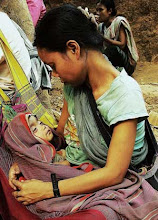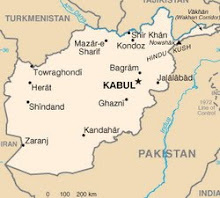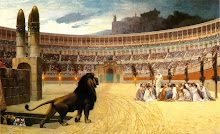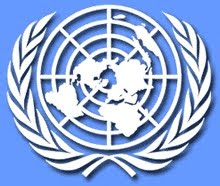 Iraqi Christian families fleeing their homes after attacks that killed 11 members of the Christian community. The United Nations has voiced its concern after more Christian families fled the northern Iraqi city of Mosul.(AFP/File)
Iraqi Christian families fleeing their homes after attacks that killed 11 members of the Christian community. The United Nations has voiced its concern after more Christian families fled the northern Iraqi city of Mosul.(AFP/File)BAGHDAD-A Christian music store owner was shot to death in Mosul, Iraqi police said Monday-the latest in a series of killings that has caused thousands of members of the religious minority to flee the northern city.Religious leaders have called for action to stop the apparent Sunni insurgent campaign against Christians. Government officials have responded by announcing new security measures and plans to send troop reinforcements to the area.Gunmen stormed into the businessman's store late Sunday in an eastern part of the city, killing him and wounding his teenage nephew, according to a police officer in the regional security operations center.He spoke on condition of anonymity because he wasn't authorized to release the information.The attack came as government spokesman Ali al-Dabbagh said the national security council had decided to form a committee to investigate the problem.The government also would send additional Iraqi forces to the area to assure "the Christians of the government's commitment to their security and protection," he said.Violence has continued in the area despite U.S.-Iraqi operations launched in May aimed at routing insurgents from Mosul, which the U.S. military at the time dubbed al-Qaida in Iraq's last urban stronghold.Christian leaders also are lobbying parliament to pass a law setting aside a number of seats for them and other minorities in upcoming provincial elections, fearing they could be further marginalized in the predominantly Muslim country.U.N. special representative Staffan de Mistura expressed concern "at the spike in violence that has targeted the Christian communities in recent days" and warned the attacks were seeking to "fuel tensions and exacerbate instability at a critical time."Islamic extremists have frequently targeted Christians since the 2003 U.S. invasion, forcing tens of thousands to flee the country. Attacks had tapered off amid a drastic decline in overall violence nationwide, but concerns are rising about the deaths this month in Mosul.There were conflicting reports about the number of Christians who have fled the city.The senior migration and displacement official in Mosul, Jawdat Ismaeel, said the latest figures show that 1,092 families have fled the city. The number could not be independently verified. Most have left for churches, monasteries and the homes of relatives in nearby Christian villages and towns.But the U.N. envoy said just over 500 families were being assisted in the area, adding that many of the newly displaced Christians had previously fled to Mosul to escape violence in Baghdad.Elsewhere in Iraq on Monday, Iraqi police and witnesses said clashes broke out briefly in Baghdad's Shiite district of Sadr City after a roadside bomb targeted a U.S. patrol. The U.S. military did not immediately respond to a request for comment.No serious casualties were reported. But the fighting reflected rising tensions amid U.S.-Iraqi negotiations over a security deal that would extend the presence of American forces in Iraq beyond the end of the year.Separately, Iraqi Prime Minister Nouri al-Maliki said the 4,100 British troops in southern Iraq are no longer necessary to provide security, although some might be needed for training and technical issues, a newspaper reported Monday."Definitely, the presence of this number of British soldiers is no longer necessary. We thank them for the role they have played, but I think that their stay is not necessary for maintaining security and control," al-Maliki told The Times of London in an interview."There might be a need for their expertise in training and some technical issues, yes, but as a fighting force, I do not think it is necessary," he said.His comments were in line with an August report that most of Britain's contingent in Iraq would be withdrawn over the next nine months, leaving only a few hundred soldiers there.In July, British Prime Minister Gordon Brown promised a major troop withdrawal in the early months of 2009, but Britain's military has said it's premature to discuss specific figures.
http://news.yahoo.com/s/ap/20081013/ap_on_re_mi_ea/ml_iraq;_ylt=AlLPctCh0IsSOV6X0rnEXL.bOrgF
As in the days of Noah....
http://news.yahoo.com/s/ap/20081013/ap_on_re_mi_ea/ml_iraq;_ylt=AlLPctCh0IsSOV6X0rnEXL.bOrgF
As in the days of Noah....


























.bmp)
No comments:
Post a Comment